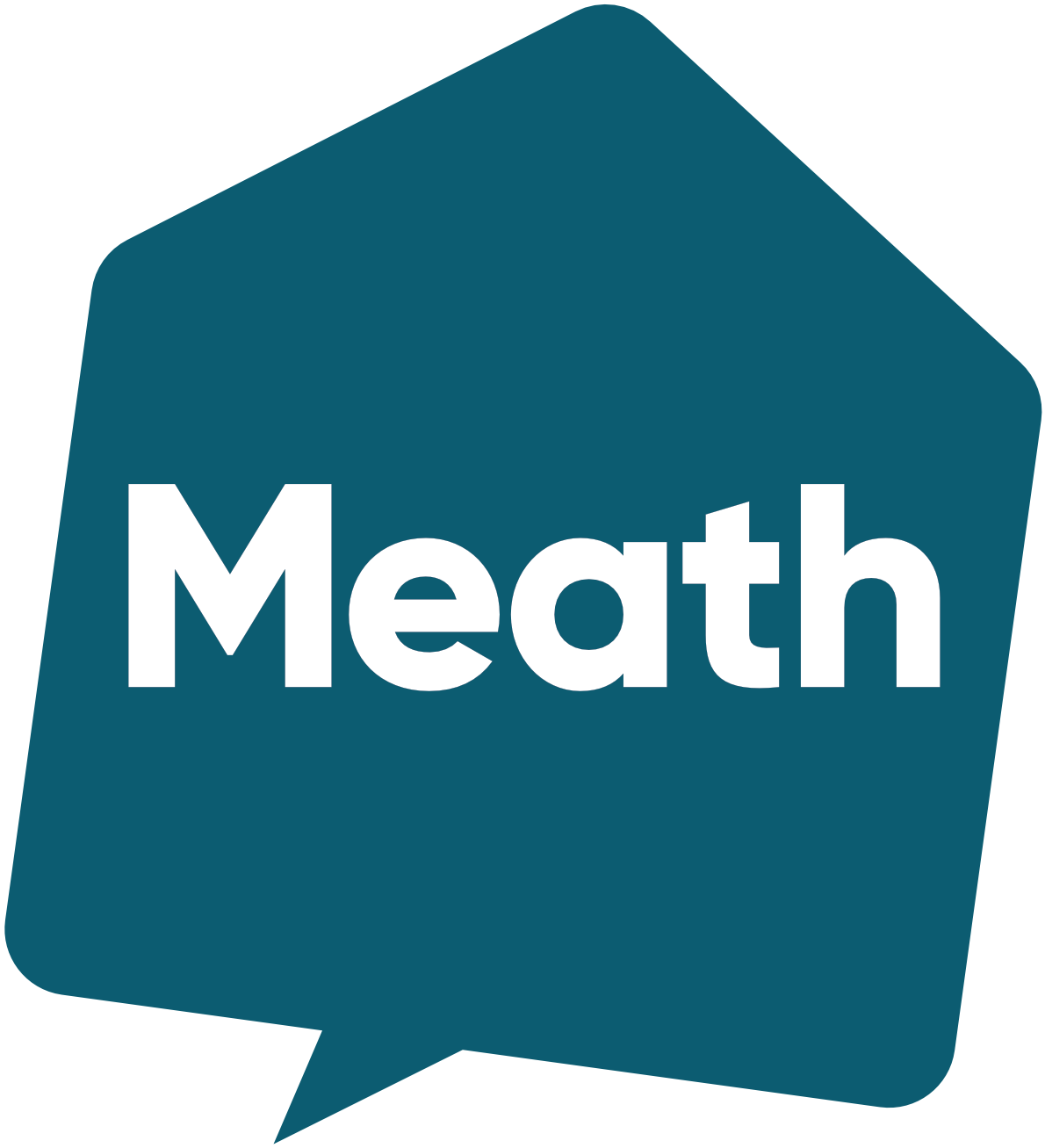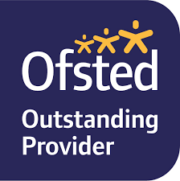School Advisory Board and Education Committee
Meet the members of our School Advisory Board and Education Committee
The School Advisory Board (SAB) serves as the local advisory body squarely focused on providing insight into the experiences of pupils, parents, staff and the wider community that can’t be obtained in any other way.
This includes:
- Identifying whether the Board members and the senior management team of Speech and Language UK’s understanding of the school matches their ‘lived experience’;
- Providing feedback on the school’s priorities, vision, ethos and strategic direction;
- championing of the school’s achievements;
- developing local links to the community for learning, development and employment;
- communication of messages back to the senior management and governance; and
- most importantly, whether pupils, parents and staff feel safe and happy.
If you would like access to the SAB meeting minutes, you may request a copy from the Clerk. Clare Bass [email protected]
Overarching legal responsibility for the school lies with the Board of Speech and Language UK Services Ltd, through the Education Committee.
School Advisory Board members
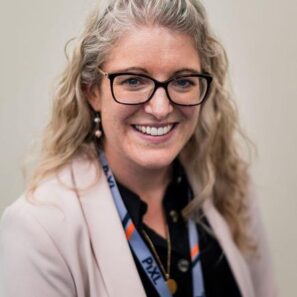
Sian James
Chair
Sian worked at PiXL for 12 years - the UKs largest education leadership network. Her roles at PiXL included Head of Operations, Head of People and Head of People and Growth. She was also an active member on the board of Directors. Prior to working for PiXL Sian enjoyed a successful 10-year career working for Hays Education.
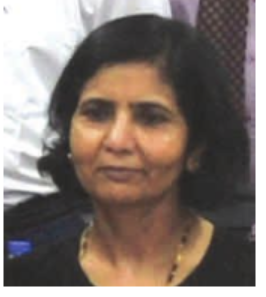
Kalpana Patil
Kalpana is a children’s surgeon. She looks after babies before birth right through childhood till adolescence. She is a consultant paediatric urologist (looking after problems of kidney bladder and genitalia) with 30 years of experience as a surgeon. She has now retired from the National Health Service as a consultant paediatric urologist in Evelina London Children’s Hospital, Guy’s & St Thomas’ NHS Foundation trust London. She continues to see patients privately in London at The Portland Hospital for Women and Children and The Cromwell Hospital. Her experience as a mainstream school governor prior to joining Meath School in September 2019 was in Hoe Valley Academy School in Woking for 18 months.

Juliette Squadrani
Juliette is a Chartered Accountant with experience both in practice and in industry; in the UK and Australia. Juliette is currently a stay at home mum. She has two children and her eldest attends Meath school. Juliette is passionate about advocating for her daughter and maximising her potential, despite her difficulties.
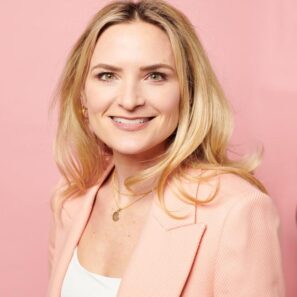
Ash Ruddy
Ash Ruddy is mother of two, with her eldest attending Meath School. Her son joined Meath School in his reception year. In addition to patient and parent advocacy skills developed during her son's extremely premature beginning (24 weeks'), she has fifteen years of global consumer product sales, team building and strategic business consulting experience.

Amy Carlse
Amy has a professional background in corporate legal services in both the UK and NZ. Currently, Amy works for a Charity supporting at risk families facing international family law matters. She also sits on the Speech and Language UK’s Policy and Development Committee which looks at the impact of the Charity’s work in nurseries and schools and how to prioritise and change government policy in speech and language for young people and children. Amy has a young child with a speech and language disorder and is passionate about maximising children’s access to quality and targeted early intervention support to face the challenges those with speech / language needs have.

Tom Waddicor
Tom Waddicor’s son has been attending Meath school since September 2022 after a frustrating start to education in a mainstream school. He has a clear understanding of the struggle parents and carers can face in accessing the right setting for their child and the lifeline that Meath School offers to children with communication needs. Tom has worked as an architect specialising in the design of schools and community buildings for almost two decades and is passionate about supporting learning outcomes through better environments.
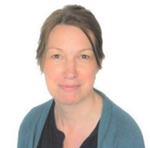
Lorna Gough
Lorna first worked at Meath 30 years ago as part of the residential team before going on to do teacher training. Having worked in several different school, she re-joined the team at Meath in 2020. With 25 years of teaching experience, mostly in Early Years, Lorna is passionate about ensuring children get the best start to their educational journey.
Education Committee members
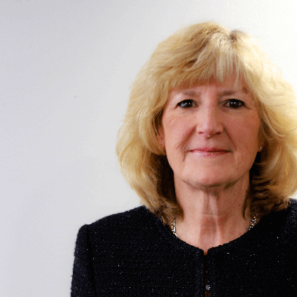
Sue Gregory
Chair of the Education Committee
Sue has decades of experience in the primary phase and was a headteacher for almost 12 years. Following secondment to a local authority Sue was appointed as one of Her Majesty’s Inspectors (HMI) in 2000. While at Ofsted, Sue led teams of HMI, developing inspection frameworks, policy, guidance and training materials across early years, schools and children’s centres. Sue held a number of leadership posts at Ofsted, including director responsibility for inspections, schools and early years. During her years as a director, she liaised with the Department for Education, national agencies, ministers and members of the House of Lords.
Sue retired from full-time work as an Ofsted Director and HMI at the end of December 2013 and is now working part-time as an independent education consultant.
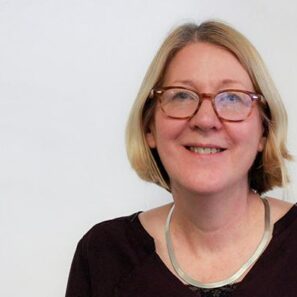
Ann Gross
Trustee
Recently retired from the civil service following a distinguished career including the last 17 years in senior positions in the Department for Education and prior to that 16 years in the Department for Health. Ann was responsible for strategy and policy on education for disadvantaged children, SEND reforms, mental health, children in care, the Child Poverty Unit and Sure Start Children’s Centres.
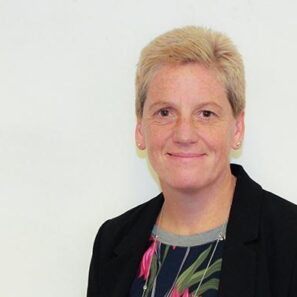
Dr Judy Clegg
Trustee and Chair of SAB for Dawn House School
Dr Judy Clegg is a Senior Lecturer in the Department of Human Communication Sciences at the University of Sheffield, UK. She trained as a Speech and language therapist at the University of Manchester and completed a PhD in developmental language disorders at the University of Nottingham.
Judy is the Director of Professional Learning overseeing the clinical degree programmes in speech and language therapy. Her research interests focus on the developmental trajectories and outcomes of children with language and communication needs, the impact of social disadvantage on children’s language and communication development, the complex co-morbidity between children’s social disadvantage, their developing language and communication and their behaviour and mental health, and evaluating the effectiveness of interventions designed to facilitate children and young peoples' language and communication abilities. Judy is also co-editor of the journal, Child Language Teaching and Therapy. Further information can be found at the University of Sheffield's website.
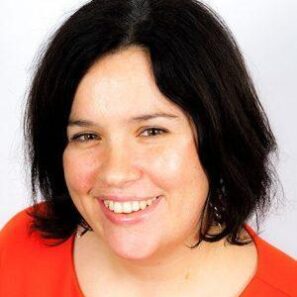
Jane Harris
CEO, Speech and Language UK
Jane is an experienced and energetic charity sector leader, with 15 years’ experience influencing public policy, building new audiences, and increasing income, raising the profile of and support for third sector organisations including the National Autistic Society, Leonard Cheshire Disability and Rethink Mental Illness.
As an experienced charity leader, Jane has spent her career raising the profile of issues that impact on people’s lives through influencing public policy, building new audiences and increasing income generation. She helped to measurably change public perceptions of mental health and autism.
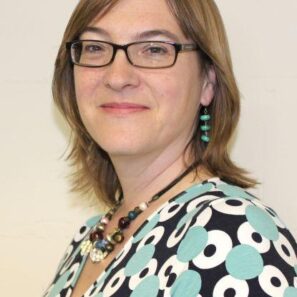
Louisa Reeves
Director of Policy and Evidence, Speech and Language, UK
Louisa is a speech and language therapist with 30 years experience of working to support children and young people with speech, language and communication needs.
She has been involved in a number of large-scale projects at Speech and Language UK, developing evidenced solutions for speech, language and communication needs. Her work includes leading on the development and evaluation of our Early Talk Boost and Talk Boost KS2 language interventions and the Tots Talking parent intervention for 2 yr olds. She is also experienced in promoting and facilitating multi-agency working to support children at all ages through Speech and Language UK's Place based approach.

Neil Maslen
Director or Education, Speech and Language UK
As the senior educationalist in the organisation, Neil’s role is to ensure the very highest quality education in our two schools and provide sector intelligence and professional guidance to work across the organisation that requires educational input. He is also the safeguarding lead for the organisation.
Neil has worked in education for over 20 years, which includes 15 years as a senior leader and headteacher and more recently as a school improvement lead in a large multi-academy trust. His experience spans both the primary and secondary phases and he has supported schools with a range of Ofsted judgements. In addition, he has facilitated on a range of National Professional Qualifications, such as the NPQML, NPQSL and NPQLT.
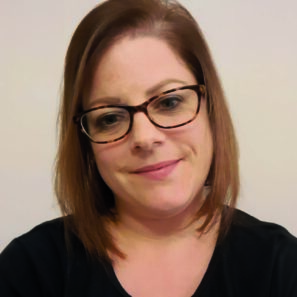
Majella Delaney
Principal, Meath School
Majella is a qualified Primary school teacher who taught in Ireland for seven years before moving to London to gain more experience and challenge herself in her field. She has taught in a range of urban and rural schools in both mainstream and special education. She is also a qualified SENCo and has completed the National Professional Qualification for senior leaders and has a range of experience in middle and senior leader positions.
Before joining Meath school, she was Vice Principal for Inclusion in a large mainstream school with specialist resource provision for Speech, language and communication which gained accreditation as a centre of excellence for Inclusion and is currently a flagship school for inclusion. She joined Meath in September 2020 as Deputy Headteacher and was appointed Principal in October 2022.
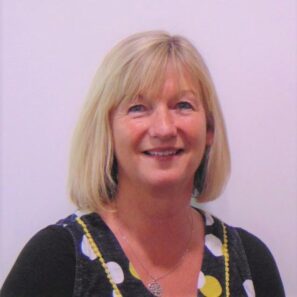
Jenny McConnell
Principal, Dawn House School
Jenny is a speech and language therapist and joined Dawn House School in 1993 having worked in the NHS for 6 years. Jenny helped to design the collaborative working model that we use today to meet the academic, social and language needs of our children so effectively.
Jenny later became a Speech and Language Therapy co-ordinator in school and then Head of Therapy. During this time Jenny gained further leadership qualifications and was appointed Principal in 2017. Jenny is passionate about ensuring that children with speech, language and communication needs get the support that they need.
Useful information
The role of a community council member
Community School Advisory Board (SAB) members will bring their unique understanding of the local community to the SAB. They will help ensure that the school meets the needs of its pupils, parents, staff and the community while enabling all of its pupils to achieve to the best of their ability. They will help facilitate effective
school communication with stakeholders and will be motivated to build links and connections between the school and the community, creating opportunities for collaboration that will enhance and strengthen both the school and community. They will also serve as an ambassador of the school and Speech and Language UK in the community.
Requisite qualities of a community council member
Community SAB members will be expected to attend SAB meetings held once a term and play an active role in decision-making. They do not need to be experts in the field of education, but they must be confident in reading the documents that will be sent to them before each meeting and coming prepared with questions that may arise.
The appointment process
Candidates will be asked to complete a brief application. Applications will be considered by the school and the SAB Chair. Council members serve a three-year term of office. Speech and Language UK will give each new SAB member an induction, as well as providing training, information and guidance on the role. All council members are required to undergo an enhanced DBS check and must agree to adhere to the Code of Conduct
Read the full document by clicking the button below.
The role of a parent School Advisory Board member
Being a parent School Advisory Board (SAB) member is a privileged and responsible role. They bring a unique parental perspective to the SAB and have the opportunity to make a difference, not only for their own children, but for children in years to come. They will also make a difference for other parents and influence the way in which the school works with them. They understand the diversity of parents’ views and will be expected to remind the SAB how matters being discussed affect parents
and to help facilitate effective school communication with parents. They are not delegates and do not speak ‘on behalf’ of the parent body, nor are they expected to ‘poll’ parents to determine their views. They make their own decisions, together with colleagues on the School Advisory Board.
Expectations of parent members
Parent SAB members will be expected to attend SAB meetings held once a term and play an active role in decision-making. They are also expected to prepare for meetings by reading any paperwork in advance and considering questions that may arise. The contributions and responsibilities of a parent member include:
- Helping the SAB communicate with parents and improve links
- Providing feedback on how to make the school more accessible to parents
- Encouraging the SAB to be more visible to the parents and community
- If another parent approaches them with a complaint, signposting that parent
to the Principal. - Being approachable to other parents, but making sure they are clear about
their role. - Being diplomatic and positive when discussing the SAB with others
- Always remembering they are part of a group and never acting alone.
- After having their say in meetings, always supporting the decisions of the full SAB, even if they disagree with them.
- Always observing confidentiality and not discussing highly sensitive and confidential information with non-members.
Requisite qualities of a parent council members
Parents and carers do not need any specific skills or experience to be a member. However, they will need a commitment to the school and the welfare of the pupils as well as the time and willingness to get involved. Members will be expected to attend 3 meetings a year (once a term) and make themselves available for visits and school events. Members do not need to be experts in the field of education, but they must be confident in reading the documents that will be sent to them before each meeting.
How parent council members are selected
All parents, carers and guardians of children at the school are eligible to be candidates. Parents are elected unless there are fewer candidates than vacancies, in which case they are appointed. This follows a nomination process, whereby parents will be asked to describe whether they have the requisite qualities required of an SAB member and the capacity and time to fulfil expectations. Parent council members serve a three-year term of office. Speech and Language UK will give each new SAB member an induction, as well as providing training, information and guidance on the role. All council members are required to undergo an enhanced DBS check and must agree to adhere to the Code of Conduct.
At Speech and Language UK, we are committed to ensuring residential pupils have high aspirations and the best possible outcomes through high quality care, support and provision in our schools. To that end, each SAB will have a designated Residential Champion, tasked with ensuring that the needs and interests of the residential pupils always remain at the forefront of everyone’s minds.
The role of the Residential Champion
As Residential Champion, you will:
- Maintain an awareness of the school’s policy and procedures in relation to
residential. - Meet with Residential Manager once a term to check in and act as a sounding
board. - Meet with the School’s independent visitor, at least annually.
- Act as a link between the Residential Manager, Independent visitor and the SAB.
- At SAB meetings, keep residential provision at the forefront of your mind as matters are discussed and remind others of how those matters might impact residential pupils.
- Encourage colleagues to always recognise and be aware of residential issues.
Requisite qualities of the Residential Champion
You will be passionate about advocating for pupils in our residential provision because you know that with the right support in school, they can go on to achieve successful long-term outcomes in life. You will also be interested in further enhancing residential practice and will work collaboratively with the Residential Manager to think about ways to improve the school’s practice.
What you are not responsible for
Residential Champions are not expected to be experts in residential provision, nor do they hold any responsibility for it in the school. Specifically, they are not responsible for the following:
- Monitoring practice at the school
- Responding to queries about residential at the school
- Directly investigating or making enquiries into residential matters
- Conducting audits at the school
The School Advisory Board Chair plays a critical role in the Speech and Language UK’s governance framework. In terms of status and contribution to the success of the school, it has some similarities to the traditional Chair of Governor role of a standalone school, though within a multi-school organisation there are some important differences which make the role more efficiently focused, and in many ways more attractive.
The role of SAB Chair requires personal maturity, a strong sense of social responsibility, demonstrable leadership qualities and emotional intelligence. Other expectations of a Chair include:
- Knowledge of the school. This will normally include living no more than 60
minutes away from the school, and evidence of some involvement with the
local community and/or areas of the work of the school. - Experience of chairing or leading effective meetings.
- Understanding of the School Advisory Board’s specific remit as described in
the Terms of Reference. - An understanding of governance.
- A commitment to the Nolan principles of public life.
The Chair will typically not be a parent of a current pupil of the school, but rather be a representative of a local employer, charity, other educational service provider, or a faith/sports/creative arts or other community leader. The main aspects of the Chair’s role are:
- Developing the SAB as an effective body: helping to attract SAB members with the necessary qualities and skills which can represent the diversity of the community, and ensuring that all members contribute as a team to the aims
of the SAB. - Giving the SAB a clear lead and direction, including setting the culture of the SAB. This involves ensuring that each member is heard and understands their role in helping to shape the strategic direction of the school, and in providing sources of evidence to Speech and Language UK to support and to validate school improvement.
- Maintaining a relationship with the Principal: in particular being a ‘critical friend’. The Principal is formally accountable to the Speech and Language UK via the line management role of the Director of Education. The SAB Chair provides a less formal, but equally valuable, source of support, challenge and encouragement for the Principal. Speech and Language UK will seek input from the SAB Chair in the performance appraisal of the Principal.
- Maintaining a relationship with the leadership of Speech and Language UK: The School Advisory Board represents an independent source of evidence for the organisation based on the ‘lived experience’ of parents, staff and others. The Chair is expected to bring relevant matters to the attention of Speech and Language UK’s leadership. This may include positive assurances about the experiences of pupils, staff and parents, as well as any unresolved concerns which require support to resolve. Additionally, to facilitate the flow of information and to promote transparency and accountability Chairs will be members of the Education Committee and will be invited to attend Chairs’ Forums at least termly to share their experiences face-to-face with each other and with Speech and Language UK leaders.
- Developing an ambassadorial role, championing the merits and successes of the school and Speech and Language UK, and forging links to help provide opportunities for pupils and to stimulate wider community participation in the school.
Time commitment and knowledge requirement
Being an SAB Chair should take up approximately 8-10 days per year. Time spent will be a combination of:
- Initial induction and ongoing guidance from the Director of Education and
other members of the Speech and Language UK’s leadership team. - Preparing for SAB meetings and reviewing minutes.
- Attending meetings (SAB Meetings, Chairs’ Forum and The Education Committee).
- Keeping in touch with the Principal – visiting the school at least once a term, and phone calls as required.
- Occasional participation on review panels for complaints and exclusions, subject to availability.
- Attendance when required at a meeting with an Ofsted inspector.
A thorough understanding of the school is crucial. Whilst there is no expectation or requirement for a Chair to have educational expertise, they will need to develop a feel for the school’s community context, its strengths and weaknesses, what it does well and where it needs to improve.
In preparation for meetings, summary performance data will be made available to SAB members, including a report from the Principal . Information presented will include data generated by the school for its own internal monitoring and assurance, along with external sources such as Ofsted inspections and other independent reviews. This data will provide key indicators to the SAB of how well the school is meeting its goals and obligations, including outcomes for pupils, the safety and welfare of pupils and staff, and assurances regarding the financial management of the school.
At SAB meetings, the Chair should invite members to ask questions and to comment on such reports and data. To be clear, the focus is not so much on professional scrutiny of the data (other controls are in place for that), but rather to give SAB members the opportunity to comment on whether such data is consistent with their own experience and perceptions of the school. Speech and Language UK’s overriding objective is to gain diverse insights and assurances regarding the school’s environment as a safe and stimulating place for pupils to learn and to grow, and as a rewarding place for staff to work.
Safeguarding is everyone’s responsibility. Speech and Language UK is committed to raising awareness and promoting the responsibility of ALL members of the community to help protect and safeguard children and adults from abuse, neglect
and harm. To that end, each SAB will have a designated Safeguarding Champion, tasked with ensuring that safeguarding and child protection remains at the forefront of everyone’s minds at all times.
The role of the Safeguarding Champio
As Safeguarding Champion, you will:
- be familiar with the school’s policy, procedures and reported data in relation
to safeguarding and wellbeing. - meet with Designated Safeguarding Lead (DSL) once a term to check in and
act as a sounding board. - act as a link between the DSL and the SAB.
- at SAB meetings, keep safeguarding at the forefront of your mind as matters
are discussed and remind others of how those matters might impact the
safety and wellbeing of pupils. This includes asking questions about the status
of actions arising from any internal or external reviews of safeguarding. - encourage colleagues to recognise and be aware of safeguarding issues at
all times
Requisite qualities of the Safeguarding Champion
You will be passionate about ensuring the safety, mental health and wellbeing of all members of the school community. You will also be interested in further enhancing safeguarding practice and will work collaboratively with the DSL to think about ways to improve the school’s practice.
What you are not responsible for
Safeguarding Champions are not expected to be experts in safeguarding, nor do they hold any formal responsibility for safeguarding practice in the school. Specifically, they are not responsible for the following:
- Monitoring safeguarding practice at the school
- Responding to queries about safeguarding at the school
- Directly investigating or making enquiries into safeguarding matters
- Checking the Single Central Register
- Conducting safeguarding audits at the school
- Signing off any safeguarding-related policies or documents
Training of Safeguarding Champions
Safeguarding Champions will be expected to complete the same annual safeguarding training provided to all SAB members. This training is aimed at ensuring members are familiar with Part One of Keeping Children Safe in Education. There is no expectation of higher level training, but if you are interested in further training, it will be available upon request
Read the full document by clicking the button below.
Read the full document by clicking the button below.
